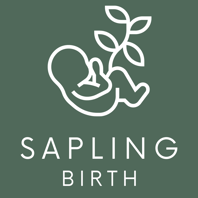Weight Gain in Pregnancy
What's normal?
Weight gain during pregnancy can sometimes become a source of stress for mothers - often unnecessarily. You may be nervous you're gaining either too much, or too little.
During pregnancy, balanced nutrition is tremendously important to the growth of your baby and your ability to nurture baby, both before and after birth. At your prenatal appointments, it's likely that your care provider is weighing you and possibly discussing the extra numbers on the scale with you. They are likely going by the recommendations of organizations like the CDC or ACOG, which recommend weight gain in pregnancy anywhere between 11 and 40 lbs.
This can be helpful information - as long as your provider is taking your overall health, both before and after your pregnancy, into account as well.
So where is that extra weight going?
Placenta - Average 1lb 8oz
Amniotic fluid - Average 2lbs
Blood volume increase - Average of 4lbs
Baby - Average 5lbs 8 oz, to 8lbs 13oz at term
That's an average of 13lbs to 16lbs 5oz, and doesn't even account for the vital weight gain in breasts, body fluid, fat and protein that are essential for sustaining your baby during pregnancy and while breastfeeding, as well as for your own health and postpartum recovery.
Still, numbers are not the best indicator of health. Listen to your body. The goal of every woman, first and foremost, should be to feel well.
Do you feel strong enough to complete everyday tasks and activities?
Do you sleep well at night, and feel awake and vibrant during the day?
Do you want to eat when you are hungry, and do you feel satisfied to stop when you are full?
Do you feel you're in a positive frame of mind most of the time?
All these signals are ways that your body tells you your state of being. There is no scale in the world that can truly measure your overall health.
Mama - feed yourself. Food is not an enemy. Food is a wonderful source of both fuel and pleasure. Our eating behaviors are meant to bring nourishment and joy so we can live our lives to their fullest.
Care providers should be taking a holistic look at a mother's health rather than only paying attention to charts and numbers on the scale. Too many women have felt pressured to restrict their food, count calories, or even lose weight during pregnancy. It is estimated that 7 million women in America struggle with an eating disorder. Instead of contributing to obsessive behavior, providers should encourage balanced eating habits and better nutritional education.
Nutrition is a valuable tool that we cover in my Comprehensive childbirth class. If this is an area you would like continued education in, start a virtual, private class with me today!






